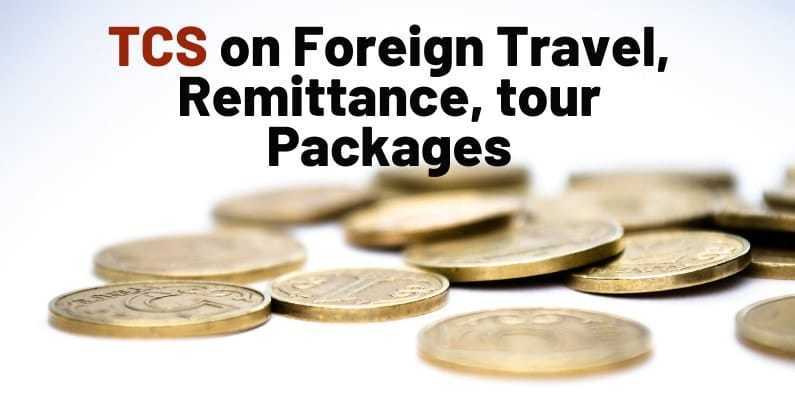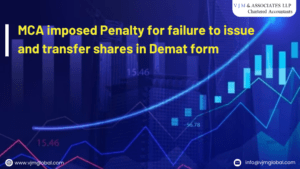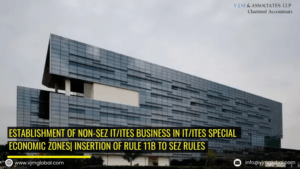Your foreign trips are going to be costlier very soon. As the finance minister Nirmala Sitharaman announced Budget 2020, TCS on Foreign Remittances through Liberalised Remittance Scheme (LRS) and on Selling of Overseas Tour Packages @ 5% has been imposed under Budget 2020 from 1st April 2020.
1. Let’s understand what foreign remittances are covered under LRS of RBI
Under LRS, RBI allows individual to remit a certain amount in a financial year to outside India under automatic route for which no permission is require up to define limits. The current prescribe limit is USD 2,50,000 per financial year.
Permissible payment is for foreign visits, medical treatment, education, purchase of property abroad and many more are within limit specified above.
2. The New Provision Under Section 206C
2.1. Authorised dealer to collect TCS on foreign remittances at the rate of 5%
An authorised dealer receiving an amount or an aggregate of amounts of Seven Lakh Rupees or more in a financial year for remittance out of India under the LRS of RBI, shall be liable to collect TCS, if he receives sum in excess of said amount from a buyer being a person remitting such amount out of India, at the rate of 5%. In non-PAN/Aadhaar cases the rate shall be 10%.
Authorised dealer means a person authorised by the Reserve Bank of India under sub-section (1) of section 10 of Foreign Exchange Management Act, 1999 to deal in foreign exchange or foreign security.
2.2. Seller of Overseas tour program to collect 5% TCS
A seller of an overseas tour program package who receives any amount from any buyer, being a person who purchases such a package, shall be liable to collect TCS at the rate of 5%. In non-PAN/ Aadhaar cases the rate shall be 10%.
Overseas tour program package includes any tour package which offers visit to a country or countries or territory or territories outside India and includes expenses for travel or hotel stay or boarding or lodging or any other expense of similar nature or in relation thereto.
The above provisions shall apply from 1st April 2020.
3. Exemptions Under the Provision
The above TCS provision shall not apply if the buyer is
- Liable to deduct tax at source under any other provision of the Act and he has deducted such amount.
- The Central Government, a State Government , an embassy, a High Commission, legation, commission, consulate, the trade representation of a foreign State, a local authority as defined in Explanation to clause (20) of section 10 or any other person notified by the Central Government in the Official Gazette for this purpose subject to such conditions as specified in that notification.
4. End Note
This new provision has been introduced to capture data of foreign travels PAN wise which may be used to ascertain the correctness of income shown in ITR. Recently, income tax return filing has been made mandatory for person having expenditure on foreign travel exceeding 2 Lakhs rupees. They must provide their detail of expenditure on foreign travel. The column to mention the passport number is also there in ITR form.
From April 1, 2020, every foreign traveller will have to pay 5% (PAN holder) and 10% (non-PAN holder) TCS over and above of total amount of tour package. However, there is a provision that if a person whose annual income is under threshold limit visits foreign country, then he will be eligible for TCS refund.
Read Here AMENDMENTS IN INCOME TAX ACT, 1961 proposes in Budget 2020






